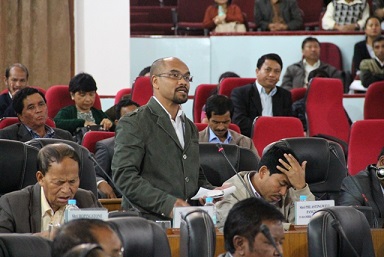
SHILLONG, OCT 10: The opposition’s resolution demanding for immediate implementation of the Inner Line Permit (ILP) was defeated through voice vote after the resolution mover HSPDP legislator Ardent Basaiawmoit refuse to withdraw saying the problem of influx was real. On its part the Congress led MUA II coalition government of Mukul Sangma reiterated its stand and said the proposed ‘Regulation of Landlord and Verification Tenancy Bill’ will take care of the influx and illegal migration issues.
Minutes after chief minister Mukul Sangma placed his reply on the floor of the assembly on Thursday, Basaiawmoit refused to withdraw his resolution stating that along with the comprehensive mechanisms proposed by the state government, ILP should also be implemented in the state to check unabated illegal influx into the state.
“I will not be able to withdraw my resolution since the issue of influx is a matter of serious concern,” Basaiawmoit. He made it clear that the opposition will not depend on the strength of the ruling party to ensure that the ILP is implemented.
Basaiawmoit said it is time for the opposition to go to the people and ensure that the assembly will have to re-convene a special session and take a stand on the ILP. He observed, “The state government is too allergic to the word ‘ILP’ and failed to listen to voice of the people.”
Meghalaya assembly speaker AT Mondal was forced to put the resolution to a voice vote albeit stiff opposition from the opposition bench. Mondal declared that the resolution was ‘lost’ after it was defeated by the MUA II government through a ‘voice-vote’.
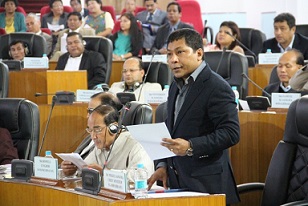
Reacting to the request of Sangma to withdraw the resolution, Basaiawmoit said that he is not disputing with the chief minister that there is a need for a multi-pronged approach saying that he too has maintained that the ILP is not the only cure to the ills of influx. But he also added that the proposed Tenancy Bill of the government will not help in resolving the issue.
Basaiawmoit demanded the state government explore the possibility of implementing the ILP in the Khasi – Jaintia Hills region and later can approach the centre for extending the same to Garo Hills region. According to him, the Eastern Bengal Frontier Regulation Act 1873 which already existed in the Khasi-Jaintia hills region does not necessarily have to go to Delhi, the state government can simply issue a mere notification for implementation of the ILP. He said, “The government can always approach the centre for amendment of the Act to extend the ILP in Garo hills region.”
Referring to Manipur, Basaiawmoit however said that though the letter given by the Ministry of Home Affair (MHA) to Manipur has stated, “If there were provision for implementation of the ILP in the state, the centre would have approve the extension of the Act,” but the centre on the other hand had also asked the Manipur state to keep strict vigilance on non-Manipuri low paid labourers which itself clearly shows that the centre is averse with the problem of influx.
Basaiawmoit said that political parties should stop looking at migrants as vote banks and unite to implement ILP, which, according to him is the most suitable way to check influx and illegal immigration.
Former chief minister, UDP president and Leader of Opposition Donkupar Roy and several other opposition members also argued in support of the resolution, which, however, was defeated by voice vote.
Participating in the debate, UDP leader Paul Lyngdoh said the government should rather concentrate in establishing its control over sectors such as mining where ‘outsiders’ take advantage to stake their claims of citizenship.He said the implementation of the ILP, a legislation adopted by the British in 1873 for the indigenous tribals, would go a long way in removing the fears that is gripping the local populace in the state.
Lyngdoh also dismissed that the ILP would affect the fledgling tourism industry by stating that Gangtok, Rumtak and Phudang (in Sikkim) which requires the Protected Area Permit to visit attracted 20,000 foreign and 70,000 domestic tourists in 2010.
Replying to discussions on a resolution, chief minister Mukul Sangma said his government would soon take up with the centre a proposal for appropriate amendment to the Representation of People’s Act in order to ensure that outsiders in the state would not get voting rights.
Sangma reply came after Basiawmoit questioned as to how the government will ensure that migrants or outsiders who come to the state and stays as tenants will not get the right to vote in the state.
Sangma however said the proposed Regulation of Landlords and Verification of Tenancy Bill, which is being drafted, once implemented would help regulate the stay of outsiders, especially the “floating population” in the state, including in the industries and mining belts and thereby check influx and illegal immigration.
Giving a brief objective of the bill, Sangma said, “The proposed Bill seeks to regulate the people who are providing space in their premises including mining areas and industries. That is why we say we need an integrated and comprehensive mechanism to tackle the problem of influx.” He said the problem of influx does not necessarily mean that the problem is in the border but it is a problem after they (influx) enters the state.”
Through this bill, Sangma said the state government will be in a position to capture all data relating to the people coming from outside the state as the landlord will be bound to regulate their stay. He requested, “I urged everyone to examine this bill and to give their views and suggestions to it.”
Sangma said, “Let us not talk about ILP anymore but let us talk about addressing the issue of influx for a secure future so that there will be no need to have apprehension anymore.” He also called upon the opposition to be realistic in manner that the future generation will say that whatever is being done today is right.
Citing Census reports, Sangma informed that the non-tribal population in Meghalaya has declined from 19.42 per cent during statehood to 13.65 per cent now but also said that there was no room for complacency.
Stating that a “fear psychosis” has been infused into the minds of the people by pressure groups who have been indulging in arson, Sangma said that the government would ensure the rule of law in the state.- By Our Reporter












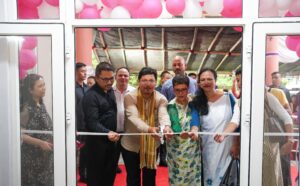

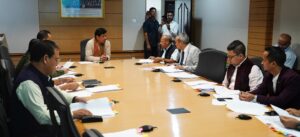
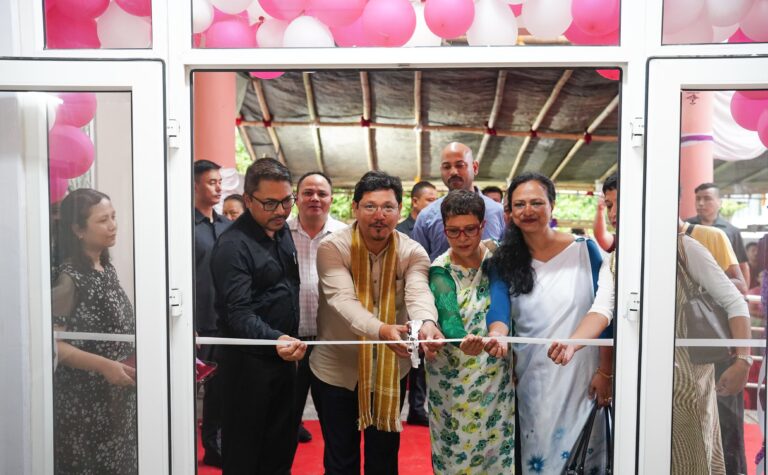
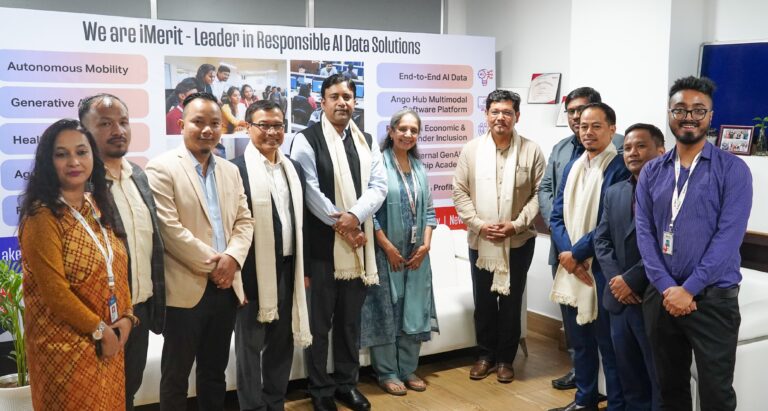
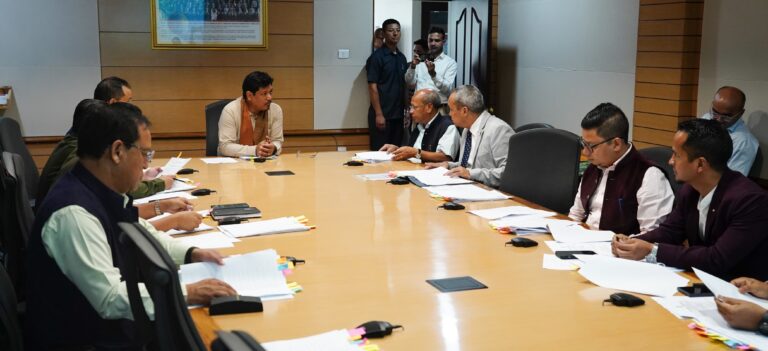

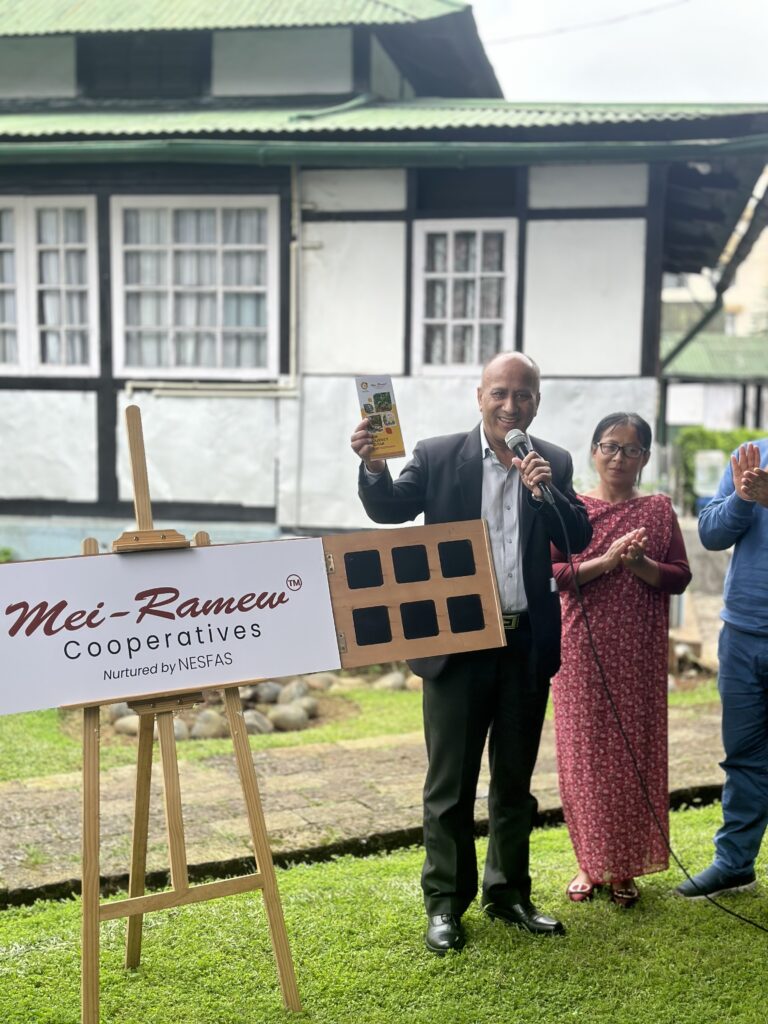
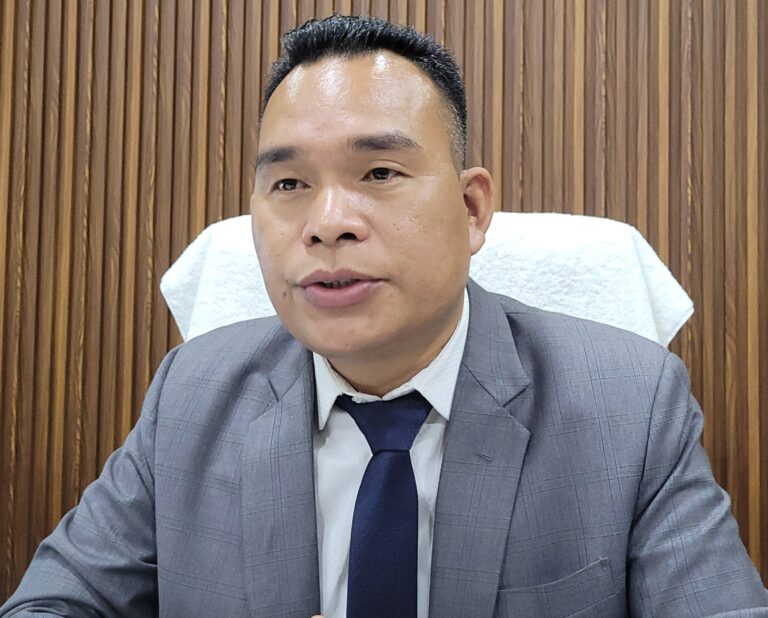
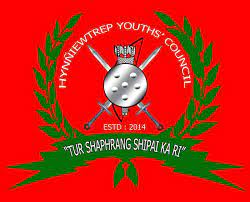


+ There are no comments
Add yours